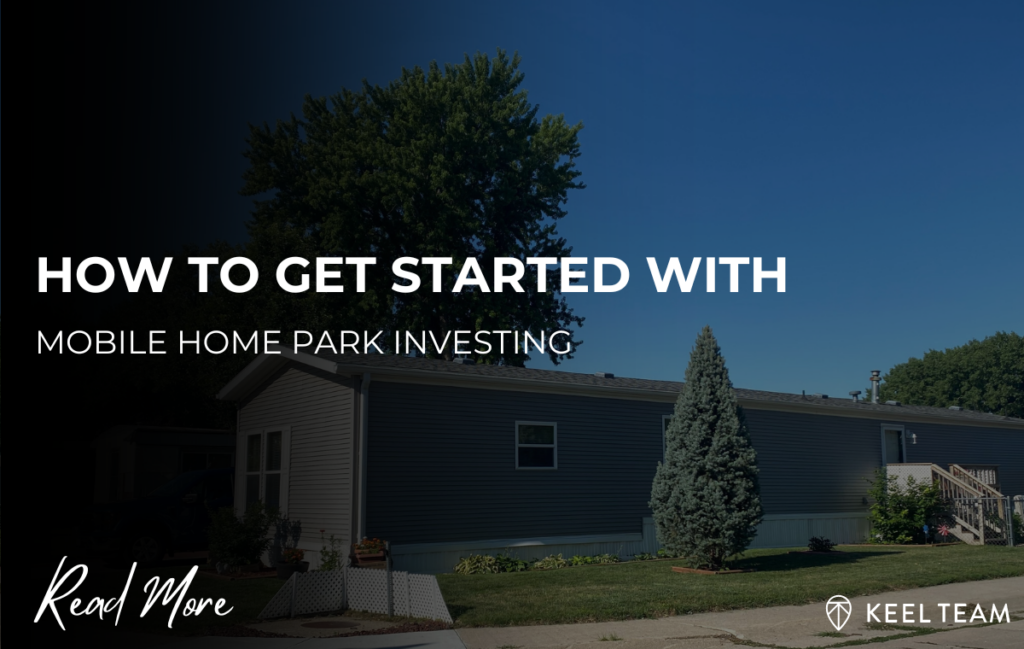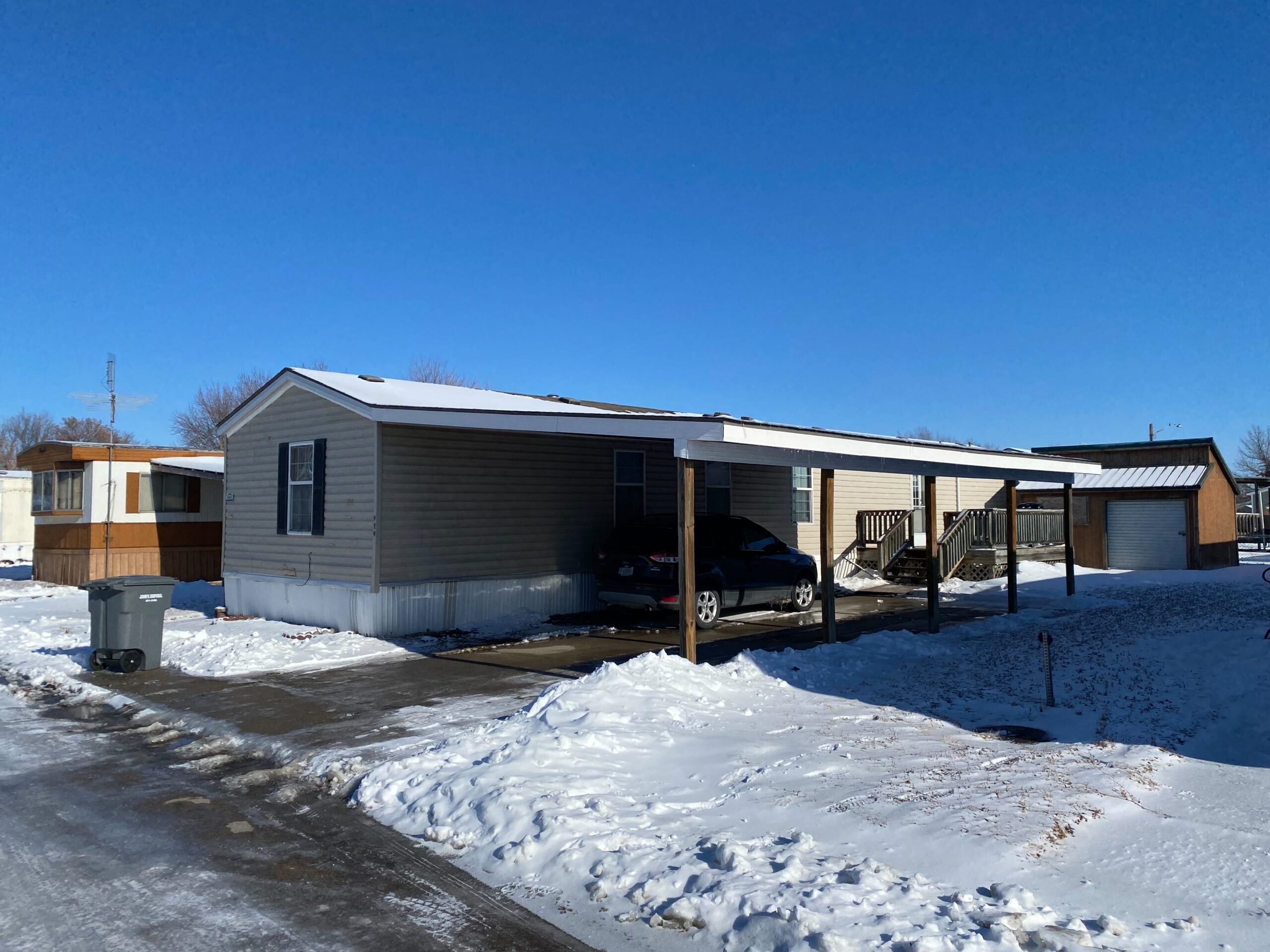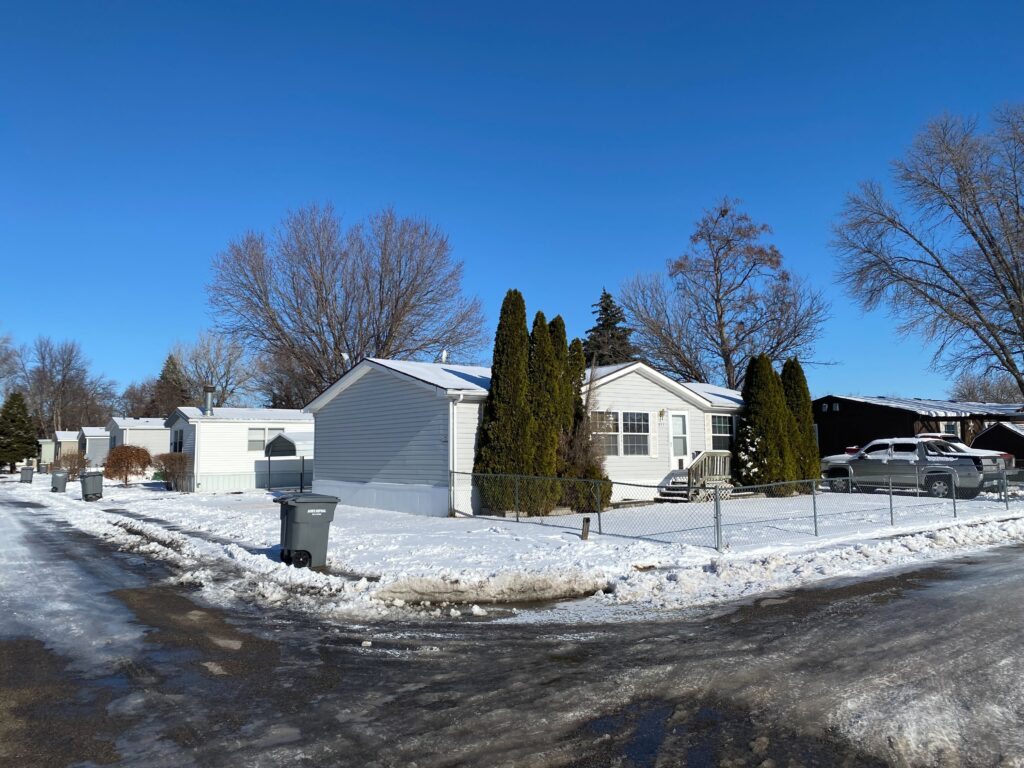How to Get Started with Mobile Home Park Investing
-
 Tristan Hunter - Investor Relations
Tristan Hunter - Investor Relations

Mobile home park investing can be an attractive option for those looking to build wealth. However, the challenge often lies in the initial capital required to get started. What if there was a way to enter this niche real estate market with little to no money upfront? This possibility exists, thanks to creative financing strategies that can open doors for investors who may not have access to large sums of cash. In this guide, we’ll explore some of these strategies, including seller financing, lease options, and joint ventures, that might help you invest in mobile home parks without significant upfront costs.
Understanding Mobile Home Park Investing
Mobile home parks, also known as manufactured housing communities, present a unique real estate investment opportunity. When investing in mobile home parks, you’re not typically purchasing the homes themselves. Instead, you’re investing in the land and infrastructure on which these homes are placed. This investment model can offer a consistent stream of rental income while potentially lowering maintenance costs since residents usually take care of their own homes. Additionally, mobile home parks often have lower vacancy rates compared to other real estate sectors, making them a potentially stable investment choice. Understanding these fundamental aspects is crucial as you explore ways to invest with limited funds.
The Appeal of Mobile Home Park Investing
There are several reasons why mobile home parks appeal to investors. First, they generally offer a steady cash flow due to the consistent rental income from the leased land. This steady income stream can be particularly appealing in times of economic uncertainty. Second, mobile home parks are often more affordable than other types of real estate investments, making them accessible to those with smaller budgets. Additionally, the demand for affordable housing has historically remained high, which helps to maintain occupancy rates and rental income. Finally, mobile home parks have the potential to offer a higher return on investment compared to traditional real estate, making them an intriguing option for those looking to maximize their investment potential.
Exploring Creative Financing
Creative financing can be a valuable tool for investors, particularly when traditional financing options are not viable. This approach involves using non-traditional methods to fund real estate purchases, which can be particularly useful when buying a mobile home park with little to no money down. Creative financing strategies can help bypass the need for bank loans, thereby opening up investment opportunities for those with limited capital.
Seller Financing: A Potential Path to Ownership
One common form of creative financing is seller financing. In this scenario, the seller essentially acts as the lender, allowing the buyer to make payments over time rather than securing a traditional mortgage. This arrangement can be beneficial for both parties. For the buyer, it can eliminate the need for a large down payment or qualifying for a bank loan. For the seller, it can lead to a faster sale and potentially higher interest income. In the context of mobile home parks, seller financing might enable you to acquire a property with minimal upfront costs, making it a valuable strategy to consider.
Download our FREE eBook! Learn the top 20 things Andrew Keel has learned from investing in this excting asset class!

Lease Options: Controlling a Property Without Immediate Ownership
Another creative financing method is the lease option. This involves leasing a property with the option to buy it at a later date. Lease options allow investors to control a property without having to secure full ownership immediately. This can be especially useful if you’re working with limited funds or need time to secure financing. By entering into a lease option agreement, you can start generating income from the property while delaying the need for a substantial financial commitment. This flexibility can be particularly advantageous when dealing with mobile home parks.
Joint Ventures: Sharing Costs and Responsibilities
Joint ventures are another avenue worth exploring when looking to invest in mobile home parks with little money down. In a joint venture, two or more parties pool their resources to invest in a property. This approach allows you to share the costs, risks, and responsibilities of the investment with others. Additionally, a joint venture can bring together different areas of expertise, which can enhance the overall success of the investment. For instance, you might partner with someone who has more experience in mobile home park management, while you contribute your knowledge of finance or market trends. By combining strengths, joint ventures can make it possible to invest in larger, more lucrative properties than you could on your own.
Real Estate Partnerships: Dividing and Conquering
Real estate partnerships are similar to joint ventures but tend to involve a more formalized agreement between the parties involved. In a partnership, multiple investors share the financial burden and decision-making responsibilities. This can help mitigate risks and increase the chances of a successful investment. Partnerships can also allow you to invest in mobile home parks without needing to cover all the costs yourself. By dividing the responsibilities and sharing the financial load, you can access investment opportunities that might otherwise be out of reach.
No Money Down Strategies: Entering the Market with Minimal Capital
No money down strategies are a cornerstone of creative financing. These strategies involve structuring deals in such a way that no initial investment is required from your end. For example, you might use seller financing, lease options, or joint ventures to acquire a mobile home park without putting up a significant amount of money. While these strategies require skillful negotiation and a clear understanding of the seller’s needs, they can open up opportunities that would otherwise be inaccessible. By focusing on no money down strategies, you can potentially enter the mobile home park investment market with minimal financial risk.
Negotiating No Money Down Deals
Successfully negotiating a no money down deal requires a careful approach. It’s essential to understand the seller’s motivations and offer solutions that address their needs. For example, if a seller is looking for a quick sale, you might propose a lease option or seller financing arrangement that allows them to offload the property quickly while still receiving a steady income. Every negotiation is unique, so tailoring your approach to the specific situation is key. Building a strong rapport with the seller and demonstrating your commitment to making the deal work can also be crucial to securing favorable terms.

Finding Mobile Home Park Opportunities
Identifying the right mobile home park to invest in is a critical step in the process. Focus on parks located in areas with high demand for affordable housing, as these are more likely to have stable occupancy rates. Additionally, look for parks that are under-managed or undervalued, as these might present opportunities for value-add investments. Networking within the mobile home park investor community and building relationships with current owners can also lead to opportunities that are not publicly advertised. By staying active in the market and keeping an eye out for potential deals, you can increase your chances of finding a suitable investment.
Importance of Due Diligence
Due diligence is a crucial part of the investment process. It involves thoroughly inspecting the mobile home park, reviewing financial records, and understanding the local market. This step helps you uncover any hidden costs or liabilities that could impact the investment’s profitability. Additionally, due diligence allows you to assess the park’s potential for growth and identify any necessary repairs or improvements. By conducting comprehensive due diligence, you can make informed decisions and minimize risks.
Crafting Your Exit Strategy
An exit strategy is an essential component of any investment plan. It outlines how you intend to exit the investment in the future, whether by selling the mobile home park, refinancing it, or converting it into another type of real estate asset. Having a clear exit strategy can help you navigate unexpected challenges and protect your financial interests. It’s important to consider various exit options and choose the one that best aligns with your long-term goals.
Conclusion: Taking the Next Steps
Investing in mobile home parks with little to no money down is possible with the right strategies and a proactive approach. By leveraging creative financing methods like seller financing, lease options, and joint ventures, you can enter this lucrative real estate market even if you don’t have significant capital. However, it’s crucial to conduct thorough due diligence, negotiate effectively, and have a solid exit strategy in place. With careful planning and execution, mobile home park investing can be a viable path to building wealth and achieving your financial goals.
Learn more about mobile home park investing.
Interested in learning more about mobile home park investing? Get in touch with us today to find out more.
Disclaimer:
The information provided is for informational purposes only and is not investment advice or a guarantee of any kind. We do not guarantee profitability. Make investment decisions based on your own research and consult registered financial and legal professionals. We are not registered financial or legal professionals and do not provide personalized investment recommendations.

Tristan Hunter - Investor Relations
View The Previous or Next Post
Subscribe Below 👇





